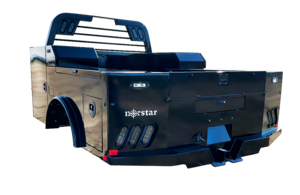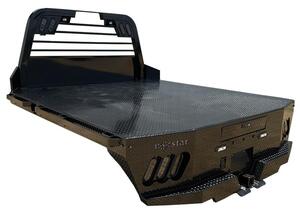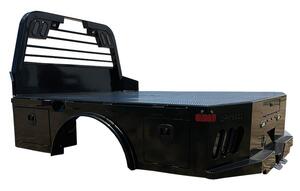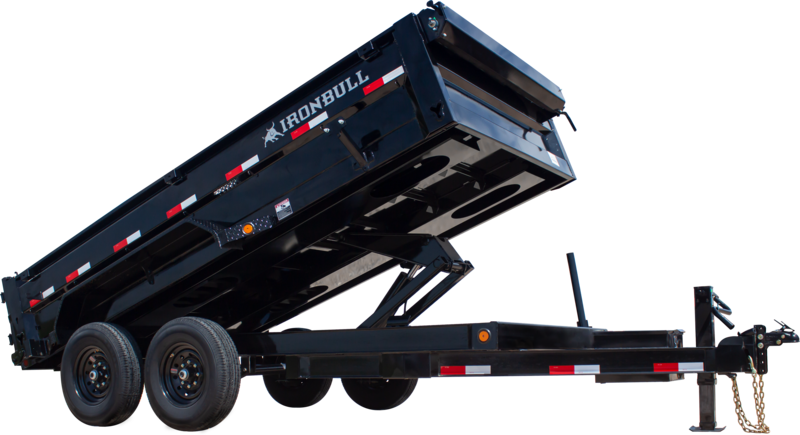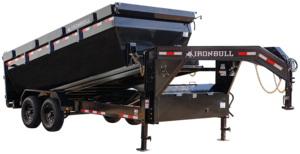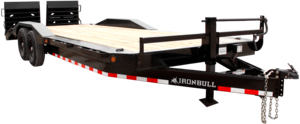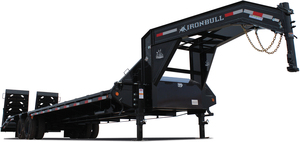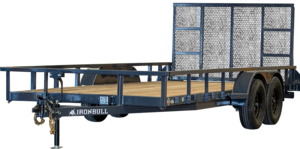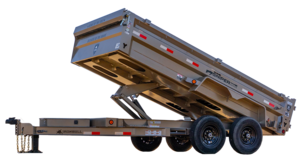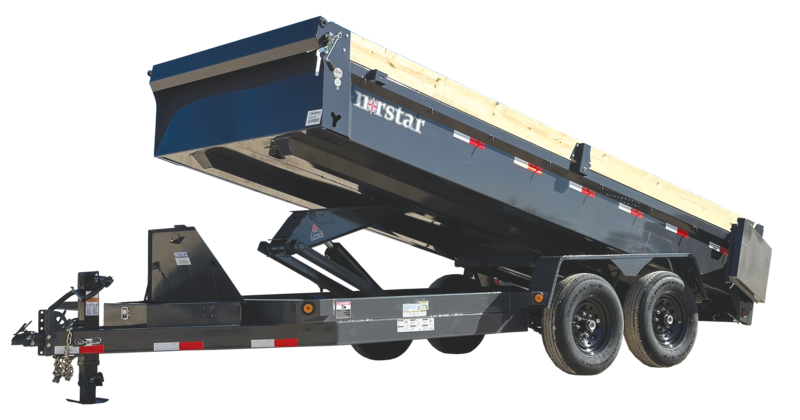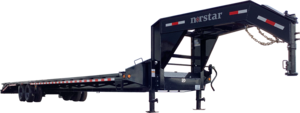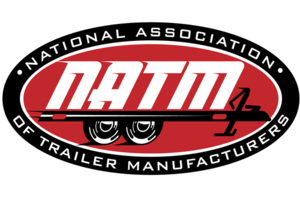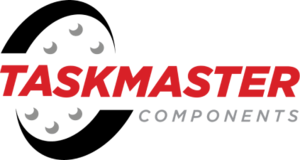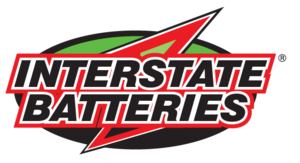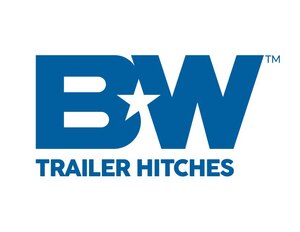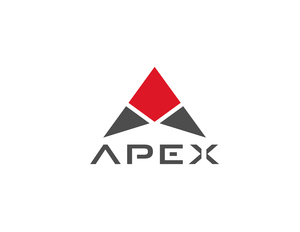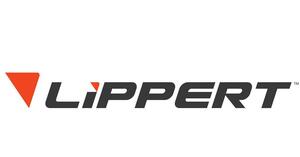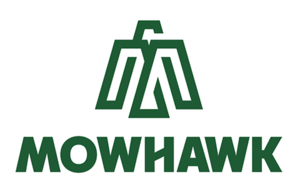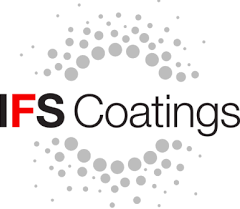Trailer Maintenance Checklist for Proper, Long-Lasting Performance
Do you own a trailer for commercial or personal use? Proper maintenance is key to ensuring its longevity and optimal performance.
Maintaining your trailer is crucial not only for its longevity but also for your safety on the road.
Regular inspection and preventive maintenance can help identify potential issues before they escalate, reducing the risk of breakdowns and accidents.
If you neglect regular upkeep, these can lead to costly trailer repairs and compromised safety.
Here's your comprehensive trailer maintenance checklist, which covers essential steps to keep your trailer at its best.
Importance of Regular Trailer Maintenance
Having a regular maintenance trailer checklist is not just a matter of convenience—it is a crucial step towards ensuring your safety on the road and protecting your investment. Disregarding maintenance can lead to costly repairs, breakdowns, and even hazardous situations.

By adhering to a routine maintenance schedule, you can proactively identify and address potential issues before they escalate, keeping your trailer in optimal condition.
Moreover, regular inspections, lubrication, cleaning, and testing of various components such as tires, brakes, electrical systems, and frames are essential to prevent malfunctions and maintain proper functionality.
Essential Components of a Trailer Maintenance Checklist
To help you stay on top of your trailer's upkeep, here are some essential components that should be included in your trailer maintenance checklist.
Exterior Inspection

During the exterior inspection of your trailer, check the tires and wheels, lights and electrical connections, hitch and coupler, and brakes and brake lights for any signs of damage or malfunction.
Tires and Wheels. Check the tire pressure regularly and ensure they are correctly inflated to the manufacturer's recommended levels. Inspect the tire tread for wear and tear, and replace any tires showing excessive damage. Additionally, examine the wheels for any signs of damage, such as cracks or bends, and tighten the lug nuts to the specified torque.
Lights and Electrical Connections. Inspect all exterior lights, including headlights, taillights, brake lights, turn signals, and clearance lights, to ensure they function properly. Replace any bulbs that have burnt out or are dim. Moreover, inspect the electrical connections, including the trailer plug and wiring harness, for any signs of damage or corrosion. Clean the connections and repair or replace any faulty wiring.
Hitch and Coupler. Check the hitch and coupler for any signs of wear or damage. Ensure the coupler is securely attached to the hitch ball and the locking mechanism functions correctly. Lubricate the moving parts of the hitch and coupler to prevent rust and ensure smooth operation. If any damage is detected, consult a professional for repairs or replacement.
Brakes and Brake Lights. Test the trailer brakes to ensure they engage smoothly and effectively. Inspect the brake pads or shoes for wear and replace them if necessary. Verify that the brake lights are working correctly when the brakes are applied. If you notice any brakes or brake light issues, seek professional assistance to address the problem promptly.
Interior Inspection
When conducting an interior inspection of your trailer, paying attention to several key areas is crucial to ensure its proper functionality and safety.
Flooring and Walls: Inspect the flooring for any signs of damage, such as cracks, soft spots, or rot. Ensure the flooring is secure and free from loose or raised sections. Similarly, check the walls for any signs of damage or water intrusion, as well as for stability and structural integrity.
Doors and Locks: Check all doors, including the main entry and cargo doors, for proper operation and alignment. Ensure the hinges are in good condition and the doors open and close smoothly. Test the locks to ensure they secure the doors effectively, providing adequate protection for your trailer and its contents.
Ventilation Systems: Evaluate the ventilation systems within the trailer, such as roof vents or windows, to ensure they are functioning correctly. Clean any debris or obstructions that may hinder proper airflow. Adequate ventilation prevents moisture buildup, regulates temperature, and maintains a comfortable interior environment.
Cargo Restraints: If your trailer is used for hauling cargo, inspect the cargo restraints, such as tie-down points, straps, or brackets. Verify that they are in good condition, securely mounted, and capable of effectively securing the load during transit. Replace any worn-out or damaged restraints to maintain the safety of your cargo.
Mechanical Systems

The mechanical systems of your trailer play a vital role in its overall performance and safety.
Suspension Components: Inspect the suspension system, including leaf springs, shock absorbers, and mounts. Look for signs of damage, wear, or corrosion. Ensure that the suspension components are adequately lubricated and functioning smoothly.
Axles and Bearings: Check the axles for any signs of damage or misalignment. Inspect the bearings for wear, play, or excessive grease leakage. Properly lubricate the bearings per manufacturer recommendations or consult a professional for trailer wheel bearing maintenance.
Landing Gear: Examine the landing gear for any damage or signs of wear. Verify that the landing gear can be operated smoothly and securely. Lubricate the moving parts to prevent rust and ensure proper functionality.
Jack Stands: Inspect the jack stands or stabilizers for stability and proper operation. Ensure they can support the trailer's weight and provide a secure and level footing when stationary.
Electrical and Wiring
Your trailer's electrical and wiring systems are crucial for proper lighting, power supply, and safety. Consider the following aspects during your inspection:
Battery and Connections: Inspect the trailer's battery for proper operation and charge. Clean the battery terminals and connections to ensure good electrical contact. Check the battery's condition and replace it if necessary.
Wiring Harnesses: Inspect the wiring harnesses for any signs of damage, such as frayed wires or loose connections. Ensure that all connections are secure and protected from moisture. Replace any damaged wiring to maintain proper electrical functionality.
Breakaway System: Test the breakaway system, which activates the trailer brakes in case of separation from the tow vehicle. Verify that the breakaway switch functions correctly, the battery is charged, and the brakes engage as intended.
Electrical Components: Check all lighting and electrical components, including headlights, taillights, turn signals, and brake lights. Verify that they are in working order and properly aligned. Replace any burnt-out bulbs and ensure that all electrical connections are secure.
Safety Equipment
Safety equipment's presence and proper functioning are key for a safe towing experience. When conducting a trailer checklist for utility trailer maintenance, pay attention to the following safety equipment:
Fire Extinguisher: Check the fire extinguisher's pressure gauge to ensure it is within the recommended range. Verify that the fire extinguisher is easily accessible and securely mounted. Replace or recharge the fire extinguisher if it has expired or been discharged.
Emergency Reflectors or Triangles: Inspect the emergency reflectors or triangles to ensure they are in good condition. Verify that you have the required number of reflectors or triangles appropriately placed around your trailer in case of an emergency or breakdown.
Safety Chains or Cables: Examine the safety chains or cables that connect your trailer to the towing vehicle. Check for any signs of wear, damage, or rust. Ensure the chains or cables are properly attached and provide a good backup connection if the hitch fails.
First Aid Kit: Check the contents of the first aid kit and ensure it is well-stocked. Replace any expired items and restock supplies as needed. A well-prepared first aid kit can prove invaluable in addressing minor injuries or medical emergencies that may occur during your travels.
Frequency of Trailer Maintenance
To maintain your trailer's optimal performance and safety, following a trailer maintenance schedule is essential. Here are various maintenance intervals to consider:
Visual Inspection
Perform a visual inspection before each use to check for any obvious signs of damage or wear.
Pre-Trip Inspection
Conduct a more detailed inspection before embarking on a trip to ensure all components function properly and address any issues.
Monthly Inspection
Perform a monthly comprehensive inspection, including checking all systems, components, and safety equipment.
Tire Maintenance
Regularly inspect the tires for wear, check the tire pressure, and ensure proper alignment and balance. Rotate the tires as recommended by the manufacturer.
Brake Inspection
Inspect the brake system, including brake pads or shoes, drums or rotors, and hydraulic or electric brake components. Adjust or replace any worn-out or malfunctioning parts.
Lubrication
Regularly lubricate moving parts, such as hinges, latches, and slide-outs, to prevent rust and ensure smooth operation.
Electrical System Check
Verify the functionality of all electrical systems, including lights, signals, and wiring connections. Replace any faulty bulbs or damaged wiring.
If you’re using a Lithium Battery, ensure it’s in good condition. Lithium batteries are known for their long life and efficiency, making them an excellent choice for trailers. Regularly check the battery’s charge level, look for any signs of damage, and ensure it’s securely mounted.
Annual Maintenance
Schedule a travel trailer annual maintenance appointment with a professional to conduct a thorough inspection, address any underlying issues, and ensure the overall condition of your trailer.
By following a regular maintenance schedule, you can identify and address potential problems early, ensuring a safe and reliable towing experience while maximizing the lifespan of your trailer.
Maintain a Fully-Functioning Trailer
By following a comprehensive trailer maintenance checklist, you can proactively identify and address potential issues, ensuring proper trailer care with utmost functionality and optimal performance.
If you require a reliable and durable trailer, consider Norstar Company. We specialize in Iron Bull trailers, known for their exceptional quality and durability. Whether you require a utility trailer, equipment trailer, or dump trailer, Iron Bull trailers are built to withstand heavy loads and demanding conditions.
Additionally, Norstar Company offers custom-made trailers tailored to your specific needs. Our experienced team can work with you to design and build a trailer that perfectly matches your requirements, ensuring a solution that meets your unique hauling needs.
Don't underestimate the importance of regular trailer maintenance and investing in a high-quality trailer. With proper upkeep and the right trailer from Norstar Company in Brookston, Texas, you can enjoy safe and reliable towing experiences, confident in the performance and durability of your trailer. Talk to our trailer experts today!




